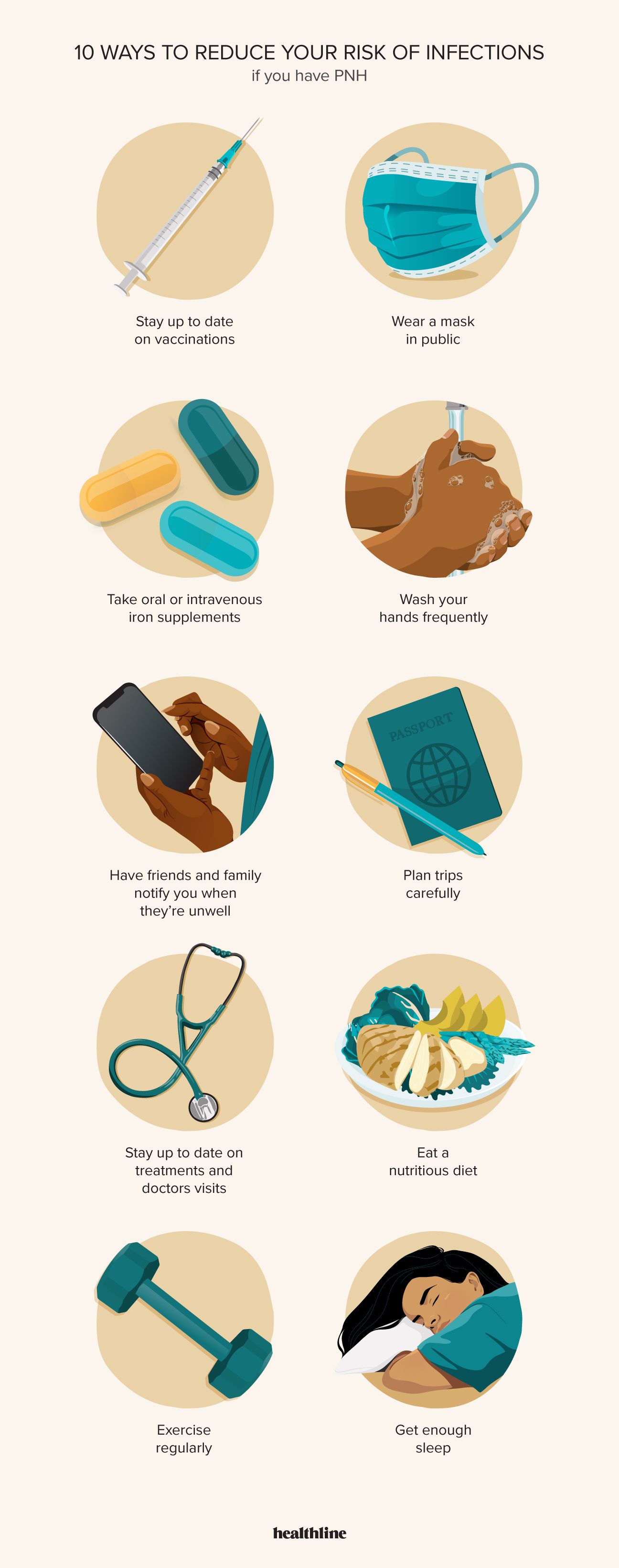Paroxysmal nocturnal hemoglobinuria (PNH) can make you more susceptible to infections. However, there are ways to mitigate the risk.
Paroxysmal nocturnal hemoglobinuria (PNH) is a rare blood disease associated with the destruction of red blood cells. It can lead to blood clots, anemia, and mild to severe symptoms.
Living with PNH increases your risk of infections. You’ll want to take steps to help protect yourself from infection to improve your quality of life and avoid potentially serious illness.

Discuss the benefits and risks of vaccinations — including for the seasonal flu and less common bacterial immunizations — with a doctor.
Wear a
Discuss oral or intravenous
Wash your hands frequently, particularly before touching your face or eating and after using the restroom. Scrub your hands with warm, soapy water for at least 20 seconds.
Talk with friends and family about your condition and be sure they know to let you know if they’re feeling unwell so you can limit contact until they feel better.
Plan trips carefully. Changes in altitude, including getting on a plane, can reduce your oxygen intake, resulting in chest pain.
Stay up to date on treatments and doctor visits. Current treatments provide effective therapy that can help improve quality of life and increase lifespan.
Eat a nutritious diet focused on fresh fruits, vegetables, and whole grains to help boost energy and provide essential nutrients.
Take good care of yourself. This includes not only eating well but also
Practice good sleep hygiene and try to
There are many things you can do to reduce the risk of infection if you have paroxysmal nocturnal hemoglobinuria (PNH). From staying up to date on vaccinations to working out a treatment plan with your healthcare provider, you can do your best to avoid getting seriously ill.

